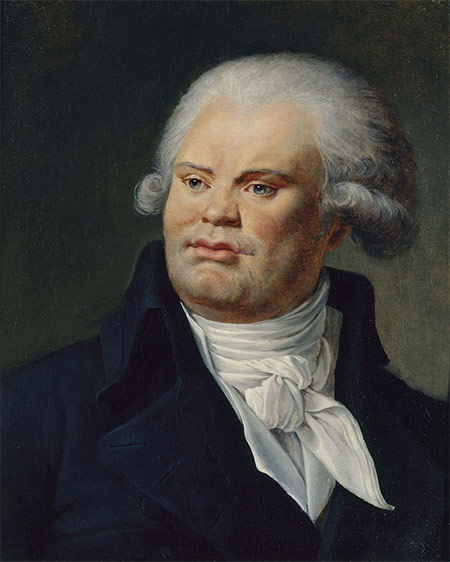Georges-Jacques Danton, 1759-1794
In the autumn of 1792, as Lamartine wrote, the “national heart of France seemed to beat in Danton’s breast.” Eighteen months later, writes Maurice Hutt, Danton went to the scaffold, crying: “Show my head to the people; it is well worth it!”

Robespierre destroyed Danton. If then, “The Incorruptible” was the “very personification” of the French Revolution, if he was right to destroy Danton, then Danton must in some real way represent a counter-revolutionary force.
If, on the other hand, Danton is taken to be the saviour of France in 1792, if his policy of moderation was justified and even correct in the circumstances of 1793, Robespierre stands condemned. This is the difficulty.
It is almost impossible to write of Danton without involving oneself in the bitter faction fights that marred the First Republic; for what may commend Danton condemns Robespierre, and what may censure the deputy from Arcis throws into sterner relief the virtues of the deputy from Arras.





